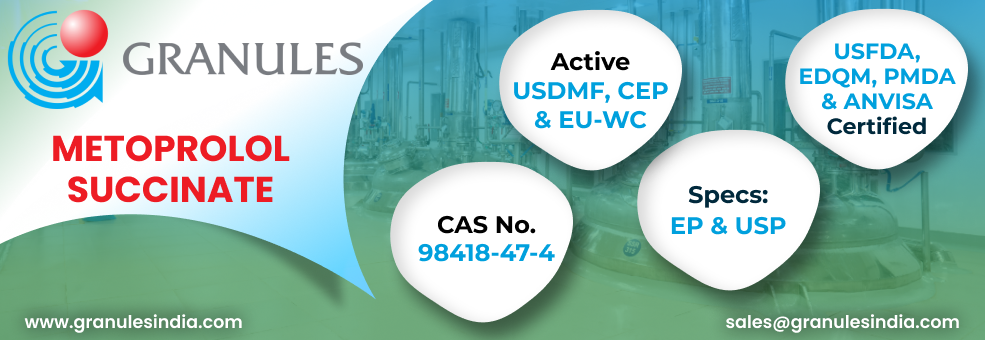


15 Aug 2023
// FDA
https://www.accessdata.fda.gov/scripts/cder/daf/index.cfm?event=overview.process&ApplNo=209272

07 Aug 2023
// FDA
https://www.accessdata.fda.gov/scripts/cder/daf/index.cfm?event=overview.process&ApplNo=216509

13 Jun 2023
// PRESS RELEASE
https://granulesindia.com/wp-content/uploads/2023/06/Press-Release-Granules-India-Metoprolol-ER-Press-Release.pdf

12 Jun 2023
// FDA
https://www.accessdata.fda.gov/scripts/cder/daf/index.cfm?event=overview.process&ApplNo=216916

22 Feb 2023
// FDA
https://www.pharmacompass.com/pdf/news/enforcement-report-week-of-february-22-2023-51785.pdf

18 Oct 2022
// FDA
https://www.accessdata.fda.gov/scripts/cder/daf/index.cfm?event=overview.process&ApplNo=215637
